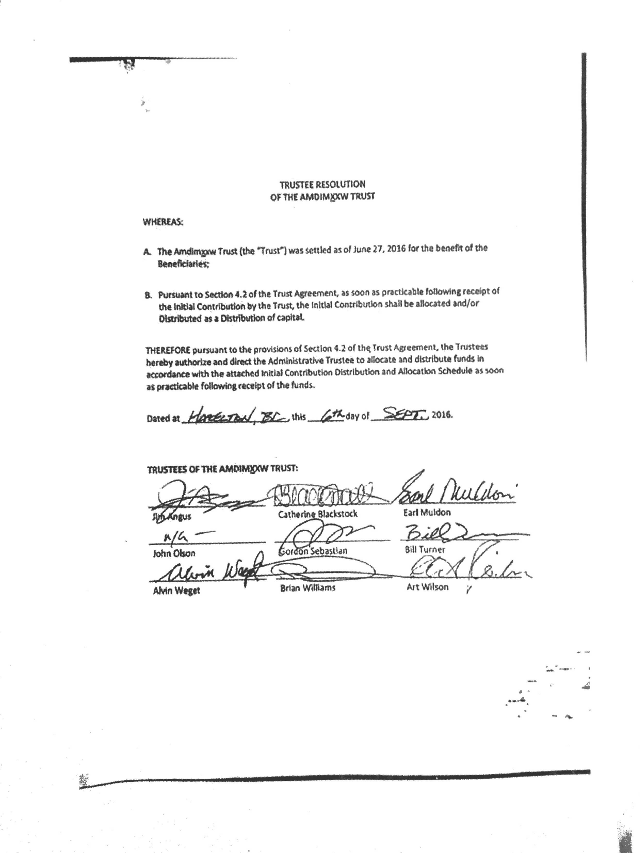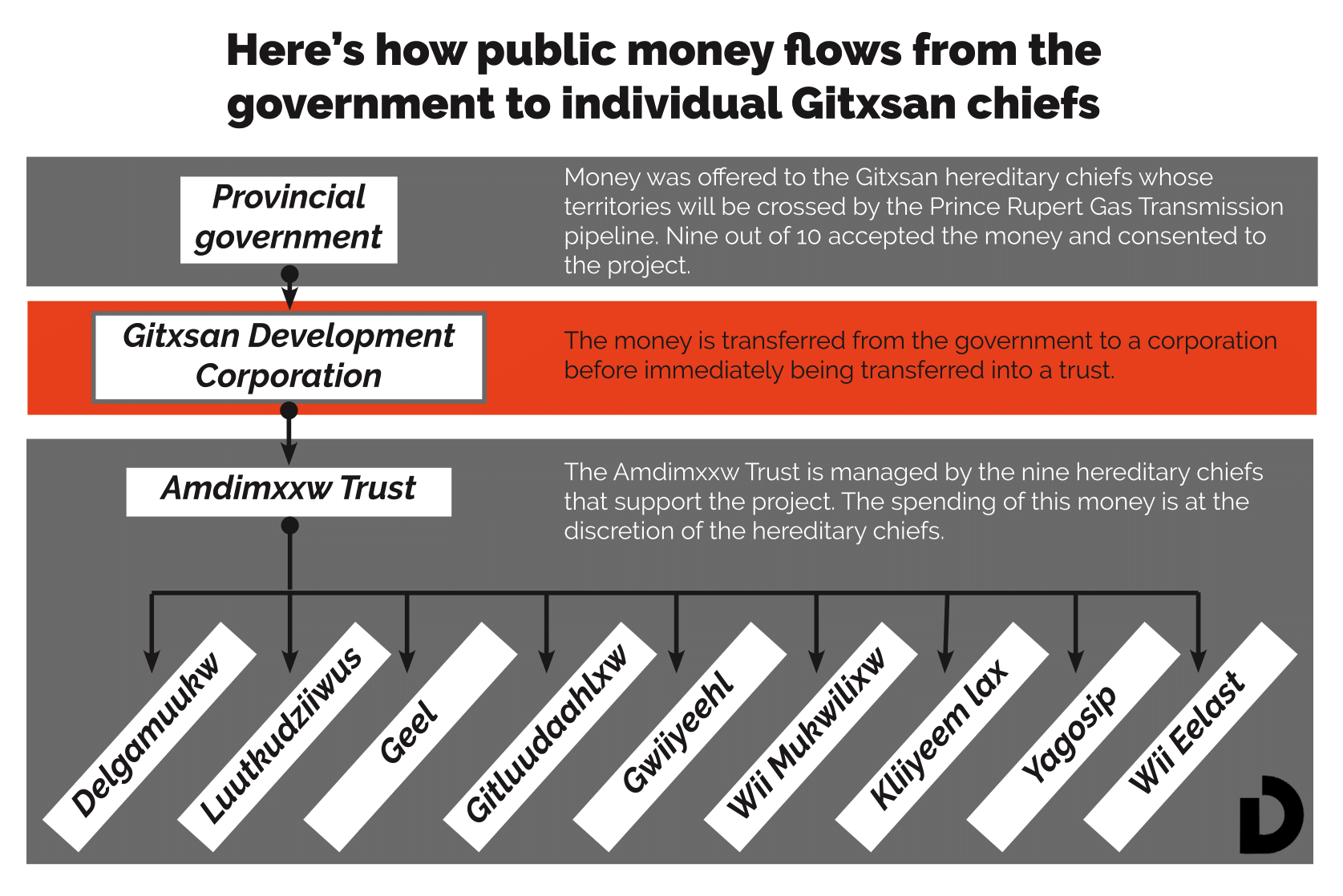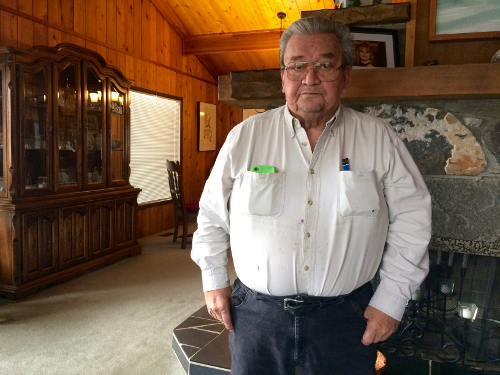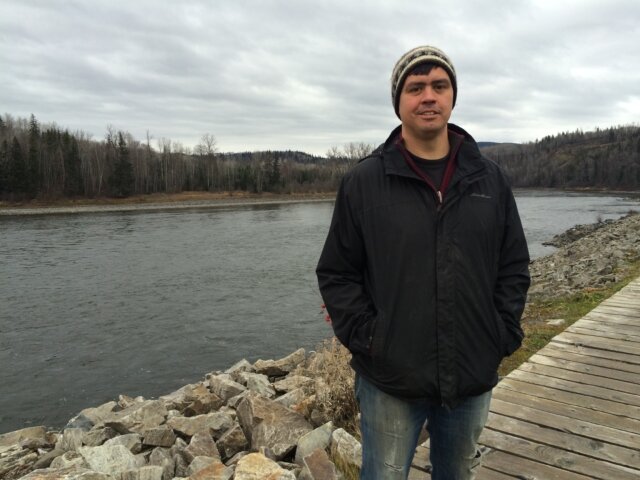Deal with B.C. government is “bribery more or less,” says prominent B.C. chief who accepted public money in exchange for pipeline approval
How government funds ended up in the hands of individual Gitxsan chiefs who consented to a pipeline without consulting all of their members
A First Nation in northern British Columbia is conflicted over a secretly signed pipeline agreement involving public funds.
The province says 17 of 19 affected First Nations have signed agreements approving of the Prince Rupert Gas Transmission line, which would transport natural gas from northeastern B.C. to a facility on the north coast for export to Asian markets. But a Discourse Media investigation reveals that chiefs from the Gitxsan Nation gave approval for the project and accepted millions of dollars without permission from all of their members.

Draft versions of two confidential documents were leaked into a Gitxsan community in the fall of 2016. One is called the “Prince Rupert Gas Transmission Project Natural Gas Benefits Agreement.” It says the B.C. government will provide the Gitxsan Nation with numerous payments, adding up to nearly $6 million, at various stages of construction in exchange for support of the project.
Another document is called the “Trustee Resolution of the Amdimxxw Trust,” dated Sept. 6, 2016. This document lists individual chief names next to dollar amounts, dividing a total of more than $5.3 million between them.
In an email response, the Government of B.C. said “financial benefits provided through the agreement are transferred to the Gitxsan Development Corporation on behalf of the Gitxsan Nation. Benefit payments are not made to individuals.”
The money from the provincial government does flow through the Gitxsan Development Corporation. But the company then transfers the same amount into the Amdimxxw Trust, which is then divided up amongst the chiefs who signed the agreement. How that money is spent, once it is placed in the trust, is at the discretion of the individual chiefs. In an information package delivered to members, the chiefs say the money is being considered for projects that would benefit the community, like an elders home.

“There’s such a massive amount of money. It’s bribery, more or less,” says Earl Muldon, who is one of the chiefs who signed the agreement. He says his portion of the fund is sitting in an account and he has not decided how he will spend it. Muldon holds the prominent Gitxsan hereditary chief name “Delgamuukw,” one of Canada’s most famous hereditary chief names.

Delgamuukw was the lead plaintiff in the ground-breaking Aboriginal land rights court case which, in 1997, saw the Supreme Court of Canada confirm that Aboriginal title, or ownership of land, exists. The case also confirmed that Aboriginal title is held communally, meaning that decisions like approving PRGT should have been made with input from Gitxsan membership. But some members say the chiefs signed the agreement in secret without informing everyone.
“The information was just mind blowing to me,” says Pansy Wright-Simms, who found the documents on her doorstep last October. “People were clearly upset that nine individuals could speak on behalf of our entire nation.”
“We clearly haven’t consented to this,” she says.
Jacob Beaton is a former communications consultant who spent more than 15 years assisting B.C. First Nations with engaging their members leading up to difficult decisions. He says uninformed membership is a common problem in pipeline negotiations.
“The problem is that there’s a lot of opposition from proponents and governments to inform people because they’re terrified of a possible ‘no.’ So rather than do any effort to inform people, they just say let’s do a confidential agreement and forget about informed consent,” he says.

Beaton adds that the B.C. government continues to create community backlash by pressuring leaders into signing agreements without first gaining a mandate from their members to do so.
“I’ve been in the room where First Nations have been saying we need some money so we can inform our people. And the government representatives have said no, just sign then take the money and inform your people. How backwards is that?” says Beaton, who was not involved in the Gitxsan negotiations related to PRGT.
A representative from the government responded to these claims in an email, writing that “government provided the opportunity for consultation on the Prince Rupert Gas Transmission project to Gitxsan hereditary chiefs whose house territories could potentially be directly affected by the project, as well as any other interested Gitxsan hereditary chiefs – and many expressed support for LNG development.”
The government did not directly address the claim that government representatives advocate confidentiality with individual First Nations leaders out of fear of getting a no from the community at large.
Beaton remains frustrated by the “terrible process” imposed by governments and industry when they want to build major projects across traditional territories. But he has a solution. He says that if the province was willing to advocate for and support First Nations in establishing their communal decision-making processes, everyone might get what they want in the end – without the backlash from members who feel left out of the conversation.
“The fact is, if most Gitxsan people were informed of the impacts and collective benefits to development, I believe a majority would say ‘yes.’ Why? Because people here are economically destitute. There are a lot of empty fridges. It’s a real thing.”
Media inquiries contact: Lindsay Sample, managing editor, Discourse Media, , 604-363-4531
